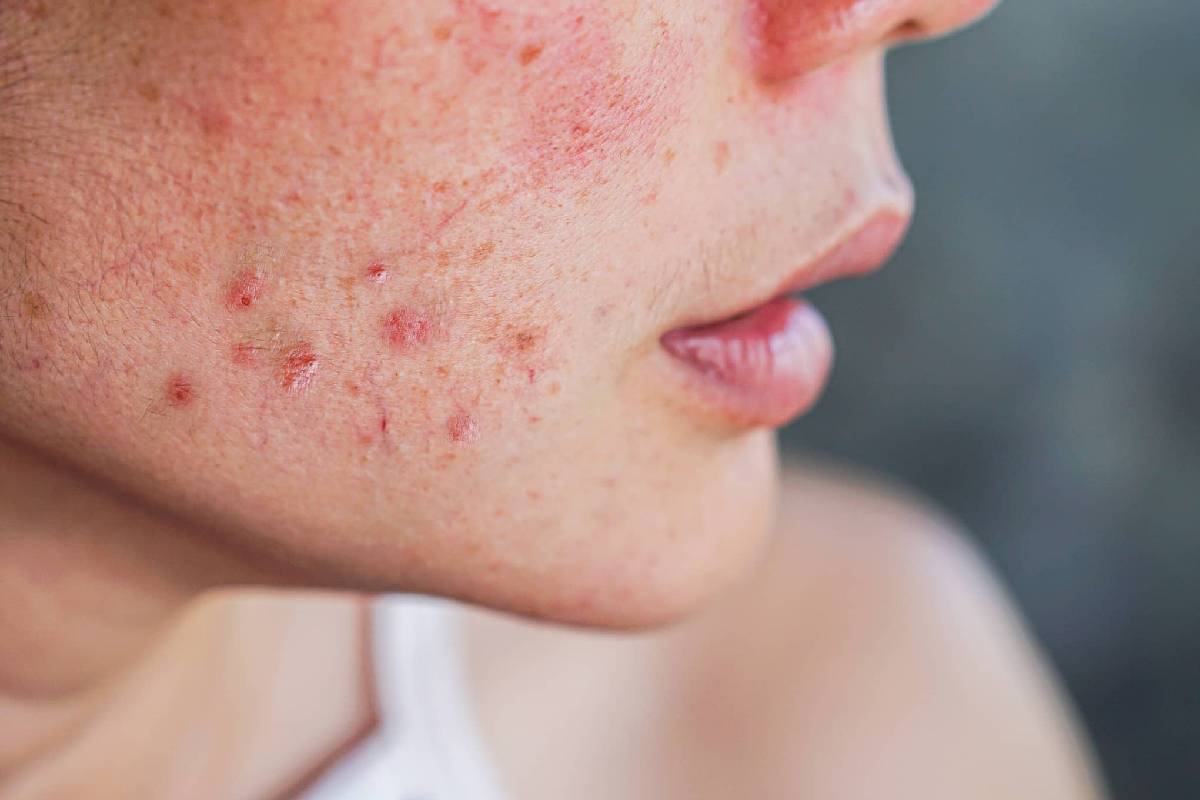With the exception of remarks about wrinkles, fine lines, and so on and so forth, we rarely talk about menopausal acne or anything else associated with menopause and skin care. Many people are in the dark since we don’t talk about this topic enough, especially when menopausal skin begins to behave in a perplexing way . Rashes, acne, rosacea, hormonal acne and pimples, and a general sensitivity too. These shifts should make everyone over a certain age ask what the hell is going on.
Dermatologists pinpoint the precise causes of menopausal skin’s simultaneous breakdown and freakout as well as the most effective treatments. Not only do wrinkles and hormonal changes play a role, but also how comfortable you feel in your own skin and your desire to exert some degree of control over it.
How does skin change during menopause?
To put it simply, a perfect storm of life experiences that when combined, result in significant changes to the skin during menopause.
The alteration in our hormone levels comes first. Low collagen and menopause are synonymous.
Skin becomes thinner and drier when collagen levels and elasticity decline.
Lower levels of estrogen also result in less oil production. We also have less dermis, which contains hyaluronic acid and collagen. Our pores appear larger when our collagen level decreases.
The drop in estrogen levels result in unopposed testosterone influence on your skin.
This causes appearance of facial hair, hair thinning, hair loss, and even some acne breakouts.
Since our skin is dry and hypersensitive, we are more likely to develop inflammatory skin conditions like rashes, rosacea, perioral dermatitis, contact dermatitis, and – for some of us — severe acne.
Body acne during menopause
When it comes to the skin below the neck use soft, fragrance-free body washes like . Showers should only last five to eight minutes at most, and tepid water should be used, not hot.
After showering, blot excess water off and apply moisturisers to damp skin to seal in moisture. Take care of your scalp as well. Use gentle shampoos to wash your hair without stripping the scalp. As a protective layer before shampoo and water, apply conditioner to hair before taking a shower.
Additionally, consume more water and limit alcohol and caffeine usage. Alcohol will never improve the appearance of your skin, especially if you overindulge. Instead, it will dry you. Caffeine should also be used responsibly. You should avoid it because it can seriously dehydrate you. It all comes down to maintaining healthy skin hydration.”
Pay attention to wounds as you age because you may bruise more easily due to weaker skin. It may be beneficial to apply ointments, such as Aquaphor Healing Ointment. Because everything heals better in a wet environment, It’s not only going to keep the wound moist, but because it’s occlusive, it’s also going to prevent infection because it functions as a barrier.
Care For Menopausal Acne
The correct cleanser should be used every day as part of your regimen. It should be designed to gently remove dead skin cells and cleanse while preserving the skin’s essential moisture. To assist trap moisture while exfoliating and lightening dark spots, women of colour may explore for chemicals like glycolic acid.
The three guiding principles of the finest skin care for menopausal skin are to keep moisture in, and stop moisture loss and further damage.
Like many other things in life, menopause has obstacles, but there are also a tonne of options for overcoming them.
